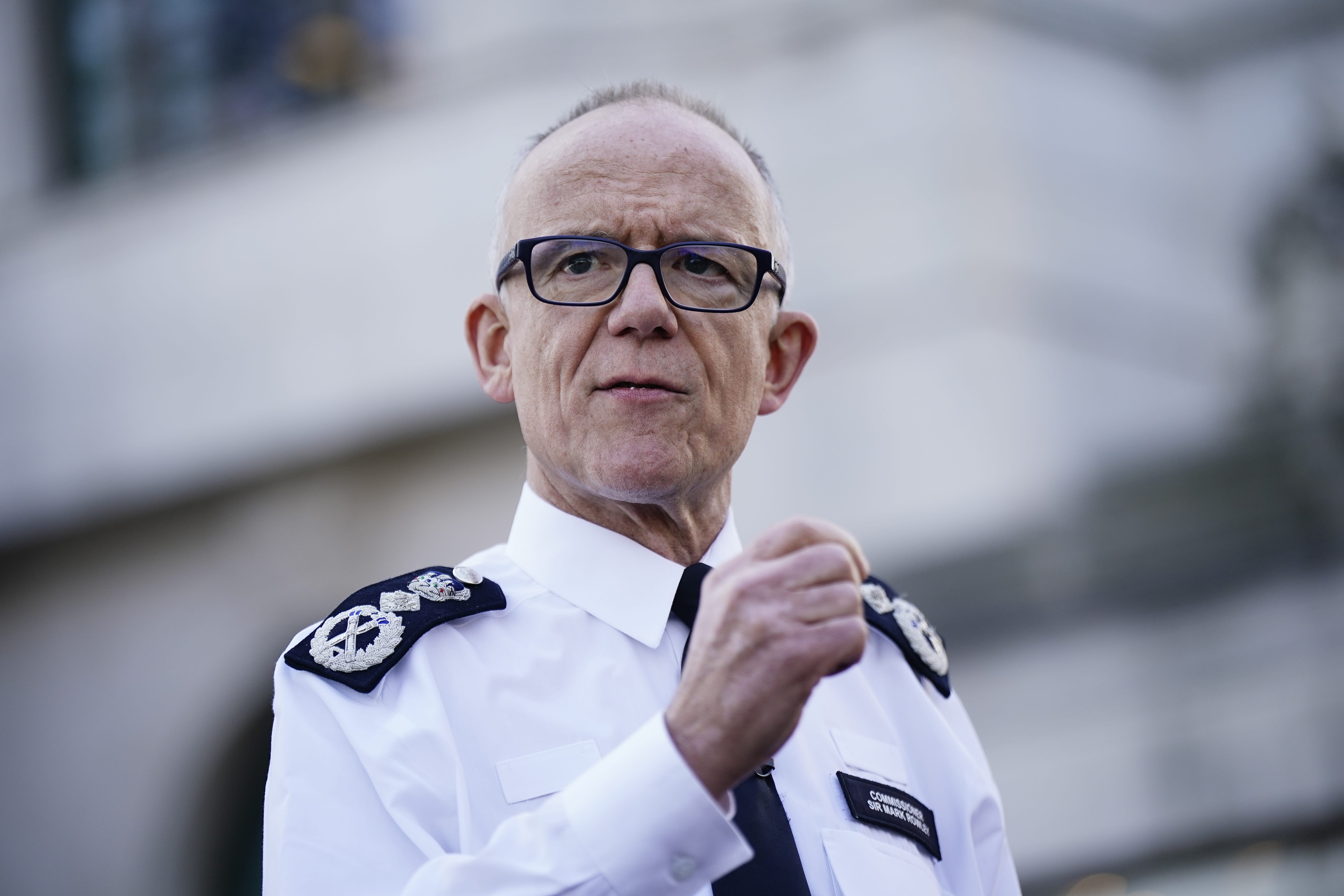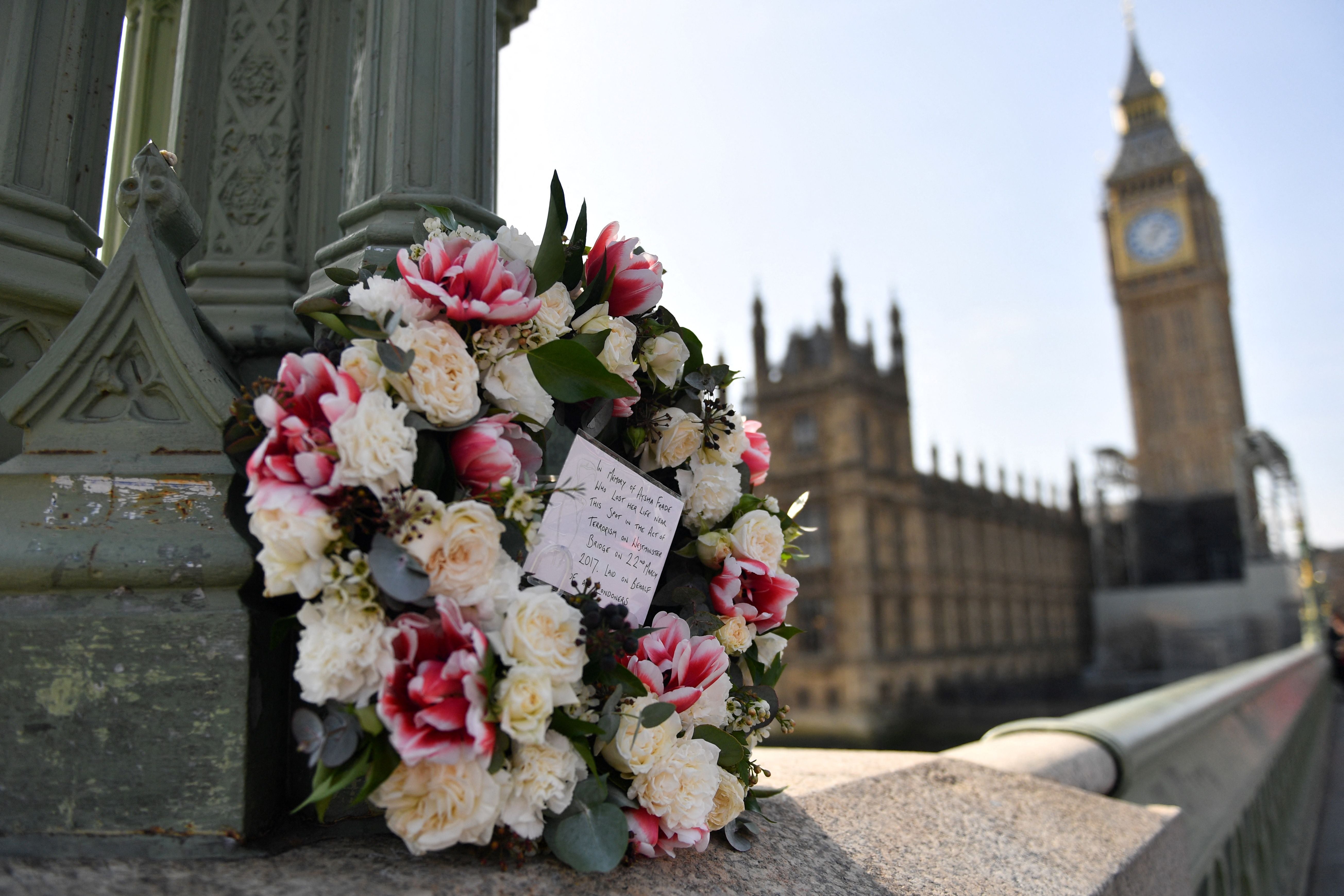Stopping terrorists is like ‘finding needle in a haystack’, Sir Mark Rowley says
‘Tens of thousands’ of people on security services’ radar could pose a threat, Met chief says

Spotting terrorists who could attack Britain is like finding a “needle in a haystack”, Britain’s most senior police officer has warned.
Sir Mark Rowley said tens of thousands of people had come onto the security services’ radar and may just need a “spark to act”.
In an interview featured in an upcoming book by The Independent’s home affairs editor Lizzie Dearden, he added: “The ones who are going to go from passive supporters [of terrorism], doing nothing illegal, through to acting on it is a small number. Spotting that small number in those tens of thousands is the needle in a haystack.”
The senior officer said the UK lacks “a strong national capability to counter extremism” that underpins terrorism, warning: “Whilst not every extremist becomes a terrorist, every terrorist has been an extremist.”
Sir Mark gave the interview for Plotters: The UK Terrorists Who Failed before he took up his current post as Metropolitan Police commissioner in September.
He was the head of UK Counter Terrorism Policing from 2014 to 2018 – a period that saw a wave of terror attacks leave dozens of people dead in London and Manchester.
Sir Mark cited the Westminster attacker, Khalid Masood, as an example of someone who had been an extremist for years but moved to action when his “personal life fell apart”.
Masood murdered five people in the first rampage claimed by Isis in Britain on 22 March 2017, and the following years have seen 14 further terror attacks launched by jihadists and far-right terrorists.
More than double that number have been foiled by the security services, but the director general of MI5 has warned that plots are becoming harder to “detect and disrupt” because of a shift away from organised networks to lone actors.
“Detecting self-initiated terrorists – who often don’t reveal their plans to anyone, and can move quickly and sometimes spontaneously from intent to violence – is an inherently hard challenge,” Ken McCallum said in his annual threat update for 2022.
“A challenge which is compounded by the complex mix, often, of extremist ideology with personal grievance and individual vulnerability such as mental ill-health.”

Sir Mark said Isis had made it “much easier for somebody to become a terrorist” by spreading propaganda containing detailed instructions on how to launch deadly knife and bomb attacks.
“If all you need to do is read a bit of propaganda, talk to a few people, have a few ideas, buy a knife, use a car, and off you go and do a much more low-tech simplistic attack, then it’s quicker from conception to execution of the idea,” he added.
Sir Mark co-authored a 2021 report warning that extremists were “operating with impunity” in Britain and exploiting gaps between hate crime and terror laws.
It suggested that some terrorists, such as the ringleader of the London Bridge attack, could have been arrested earlier if tighter laws had been in place, and made a series of recommendations that were not responded to by the government.
Recalling his time as head of Counter Terrorism Policing, Sir Mark said there was “an expectation that none of this will ever happen, that you’ll stop everything”.
“The politicians want perfection, the public wants perfection,” he added.
“You are aiming for perfection but everyone knows that it isn’t quite possible.”
Plotters: The UK Terrorists Who Failed, by Lizzie Dearden, will be published on 23 March






Join our commenting forum
Join thought-provoking conversations, follow other Independent readers and see their replies
Comments